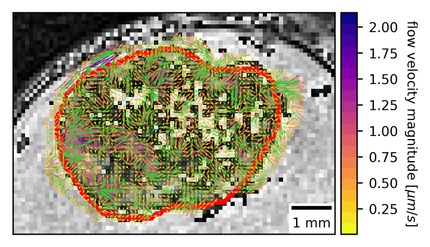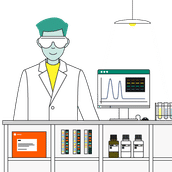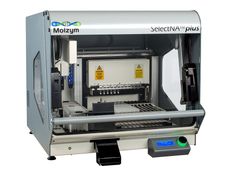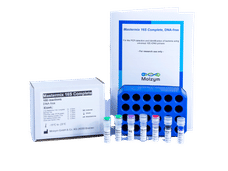Mount Sinai researchers find potential therapeutic target across a range of cancer types
Advertisement
Researchers from Mount Sinai School of medicine, in collaboration with investigators of the National Institute of Health and Medical Research (INSERM) of France led by Nicolae Ghinea, PhD, have found a common link among several malignant tumor types in all grades of cancer. This breakthrough may ultimately provide a new diagnostic or therapeutic target to detect cancer early or stop tumor growth.
The team discovered that a hormone receptor typically found in human reproductive organs is also found in blood vessel cells in a wide range of tumor types. The receptors are not present on the blood vessels of any normal tissues with the exception of reproductive organs, where they are present in much lower concentrations than in tumors.
"This new tumor marker may be used to improve cancer detection. Tumor imaging agents that bind to the new marker could be injected in the vasculature and would make visible early tumors located anywhere in the body using magnetic resonance imaging, positron emission tomography, or ultrasound imaging," said the study's lead author, Aurelian Radu, PhD, Assistant Professor of Developmental and Regenerative Biology, Mount Sinai School of Medicine.
"New therapeutic agents can be developed that will block the tumor blood supply, either by inhibiting formation of new blood vessels, blocking the blood flow by coagulation, or by destroying the existing tumor vessels," said Dr. Radu.
Scientists evaluated tissue samples from the tumors of 1,336 people in 11 common cancer types, including prostate, breast, colon, pancreatic, lung, liver, and ovarian. They used as detection reagents antibodies that act as homing devices to the hormone receptor, called the Follicle-Stimulating Hormone (FSH) receptor. The research team found that the antibodies located the FSH receptor on the cells that form the blood vessel walls in the periphery of tumors, extending both internally and externally in the immediate vicinity of the tumor.
In preparation for clinical applications aimed at targeting the FSH receptor, the team used an animal model to evaluate if the receptor is accessible for diagnostic or therapeutic agents injected in the blood. As an imaging agent, the investigators used the same antibodies coupled with gold particles, which allow high resolution imaging at a subcellular level using an electron microscope. The studies confirmed that these agents accumulate on the blood vessels in the tumor but do not bind to blood vessels in the normal tissues.
Activation of the FSH receptor is known to contribute to the signaling of vascular endothelial growth factor (VEGF), a protein that stimulates the growth of blood vessels, including those in tumors. Therefore, blocking the action of the FSH receptor may also block signaling of VEGF.
"We are currently investigating the mechanism that leads to the abnormal presence of FSH-receptor on the cells that form the walls of the tumor blood vessels. Studies are in progress to assess the potential contribution of FSH receptor to tumor growth and its connection with known tumor signaling mechanisms, and to generate and evaluate in animals imaging and therapeutic agents," said Dr. Radu.
Compared to currently available drugs, the future agents are expected to have reduced side effects, because the target is absent from almost all normal tissues, and in the blood vessels of the reproductive organs it is present in much lower concentrations than in tumors.
The study is published in the October 21 issue of The New England Journal of Medicine.
Other news from the department science
These products might interest you
Most read news
More news from our other portals
See the theme worlds for related content
Topic world Antibodies
Antibodies are specialized molecules of our immune system that can specifically recognize and neutralize pathogens or foreign substances. Antibody research in biotech and pharma has recognized this natural defense potential and is working intensively to make it therapeutically useful. From monoclonal antibodies used against cancer or autoimmune diseases to antibody-drug conjugates that specifically transport drugs to disease cells - the possibilities are enormous

Topic world Antibodies
Antibodies are specialized molecules of our immune system that can specifically recognize and neutralize pathogens or foreign substances. Antibody research in biotech and pharma has recognized this natural defense potential and is working intensively to make it therapeutically useful. From monoclonal antibodies used against cancer or autoimmune diseases to antibody-drug conjugates that specifically transport drugs to disease cells - the possibilities are enormous




















































